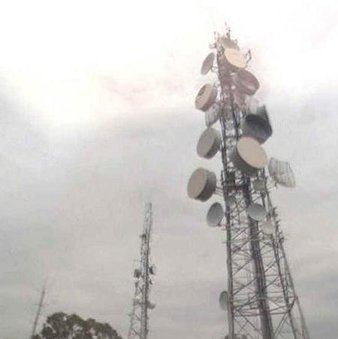I'm a licensed Aircraft Mechanic & Inspector with twenty five-plus years in the field. I've had a varied career so far, with time spent in the sheetmetal, mechanic, and inspection specialties. Most of my time is on heavy Boeing and McDonnell Douglas aircraft, of the passenger, cargo, and experimental type. This career isn't for everyone, but I enjoy it.
Please do NOT ask me to troubleshoot problems with your airplane, that is not what this Q&A is for.
The 'How' is a lot easier to answer than the 'Why'.
This is how it happened: I enrolled in Lansing Community College's Aviation Maintenance Program; and went to school out at the Lansing airport for two years.
Not too long after graduating, someone I worked with spotted a want ad for Aircraft Mechanics in one of the papers. I called, and got hired.
That's how I became an aircraft mechanic.
This is how I became an inspector: About ten years after I started working on airplanes; I found myself working at a place that was just getting their first B747. And since I had more experience on them than anyone else that worked there at the time, I was dubbed the 'expert'. Deservedly, or not.
'Expert' transitioned to 'Inspector' when it came time for heavy maintenance.
I recommend the two year schooling route whenever possible to get started in this field. It is the easiest, and best way to get your two tickets.
After that, the real learning starts.
If you don't have any felonies, and are truly willing to do anything, with a good attitude. There is no reason you shouldn't be able to find a job with an airline, or aircraft repair facility.
Just be persistant in your job search. And, there may not be any openings in your immediate area; so you may have to move. Check on jsfirm.com for openings. As well as all the traditional places.
Good luck.
Responded as requested.
Short answers: No, you don't have to be physically fit to be an aircraft mechanic; You can do this work without too much experience repairing things previously; and of course teachers are willing to help you.
Longer thoughts and answers:
1) As far as being physically fit - I mean, obviously it helps you if you are physically fit. With greater fitness you can work harder, longer, without fatigue. And with a lean and trim body, you can work easier in the tight areas that are all over the typical aircraft.
But you don't absolutely have to be fit and trim. For example, I've been at least 100 lbs overweight my entire career so far.
Has it been ideal? No, it has not. I've been unable to squeeze into places plenty of times, and had to get someone else to do the thing for me. Once, I even got myself stuck in between an electronics rack and the floor beams in a DC-9.
Beyond the strictly physical aspect; being physically fit would help in any career. From the making of the initial impression, to the lasting reputation you work with. Slim, fit people, are usually thought better of overall. That's just the way the world is. (But I suspect you know that already)
A career in aviation maintenance, depending on what end of it you work in, can be really tough on your body. No matter what level of fitness you are.
2) So you don't have much experience repairing things - I guess I'd have you ask yourself how comfortable you are working with your hands, and tools; and whether you can figure out maintenance instructions fairly easily or not.
It sounds like you are planning on going to an Aviation Maintenance school, by how you worded your question. Which I think is a great idea. It is the route I took, and in my opinion it is better than going the on-the-job experience route of getting your license. Either way, you pay for it. Whether in up-front costs via tuition and time; or in at least three years of working for reduced pay as a mechanic's helper while you gain the experience necessary for the tests. Going to school first, will get you your education before you start.
Teachers will not only help you with your learning, and hands on projects. Good teachers will guide you to your strengths as well. The best teachers, will honestly tell you if they think you are hopelessly in the wrong training program.
If you choose this career, you will find a lot of people who start doing it, with nothing but shade tree auto mechanic type experience when they start out. So don't be too intimidated.
Being logical, clever, and good with your hands, will carry you far in this job field.
Bracketologist
 Why have there been so many 15-2 upsets, but no 16-1's?
Why have there been so many 15-2 upsets, but no 16-1's?
Dating Website Employee
 How does a dating site get its first 10,000 customers?
How does a dating site get its first 10,000 customers?
Radio program/music director
 Just how good of a radio host do you think Howard Stern is?
Just how good of a radio host do you think Howard Stern is?
Generally speaking, to go into this profession, you should be able to work off of a six foot ladder at least. But more specifically; "It Depends".
It depends on where you end up working, and on what type of aircraft or equipment.
On one end of the scale; you could find yourself a job as an A&P, working bench overhauls or inspections in a component repair station. In which case, you will seldom see an actual airplane in the course of your duties.
Or, you could work for a place that only has small aircraft. Such as Cessna 172's. The highest you would ever have to go, is up a few steps of a six foot ladder to do something.
There is a huge middle ground, where varying heights and equiment are used to reach different points on the airplanes.
In my personal experience, which is all on DC-9 to B747's in size: I have to be able to use 6, 8, 12, and 14 foot ladders. Sometimes to their very topmost steps, for long periods of time. Motorized man-lifts are also used, both the platform sort, and the boom-type.
The tallest point on a B747 is about 70 feet in the air, at the top of the tail. And sometimes, you do have to go up there.
When I'm out in the hangars, about half of my time is spent on lifts or ladders. But keep in mind the size of the planes I work with.
The smaller the plane, the less time you'll be on ladders and lifts. When I am working a heavy check on something the size of a DC-9, for example, maybe only 25% of my time is on ladders and lifts. Since they are so much closer to the ground.
In conclusion: If you are not comfortable with heights, there is still no reason you cannot be an A&P. But remember that it will limit your employment choices severely if you can't learn to deal with heights at least a little bit.
Some positions will require you to travel and some will not. It just depends on the position.
The expected job duties are usually listed on job postings, so you can see what they say. But most aircraft mechanic jobs list at least "occasional travel" as one of the expected things.
Lots of aircraft mechanics end up never or very seldom travelling for the job. So just look around, and see what you can find.
I guess I am not certain what your specific question is. It is important for anyone who works with machinery to understand a thing or two about friction. A flight mechanic needs to know no more, or less about friction than any other type of mechanic.
Does a person walking on snow and ice need to know about friction?
How about a carpenter, shaping or sanding wood?
This is a strange question you have asked.
-OR-
 Login with Facebook
Login with Facebook (max 20 characters - letters, numbers, and underscores only. Note that your username is private, and you have the option to choose an alias when asking questions or hosting a Q&A.)
(A valid e-mail address is required. Your e-mail will not be shared with anyone.)
(min 5 characters)
By checking this box, you acknowledge that you have read and agree to Jobstr.com’s Terms and Privacy Policy.
-OR-
 Register with Facebook
Register with Facebook(Don't worry: you'll be able to choose an alias when asking questions or hosting a Q&A.)